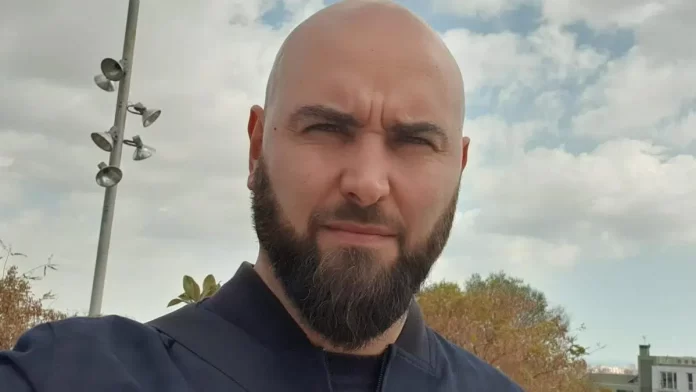Pablo González was a Spanish journalist with a captivating story. Born in Moscow as Pavel Rubtsov, he moved to Spain at the age of nine with his mother. He embraced his new home, adopting Spanish citizenship and building a career as a journalist. Over the years, he worked for several news outlets, reporting on important events and becoming well-known in the media world.
A Journey from Journalism to Espionage Suspicions
In 2019, González moved to Poland to continue his journalism career. He reported on significant developments and became a familiar face to many. However, his life took a sudden and dramatic turn when Russia launched its invasion of Ukraine in February 2022. Like many journalists, González rushed to the Polish-Ukrainian border to cover the unfolding humanitarian crisis. But just a week into his reporting, he was arrested by Polish authorities under suspicion of espionage.
Poland Uncovers Sinister Russian Spy Ring Amidst European Espionage Crisis, 9 Arrested
The charges against González were shocking. The authorities accused him of being an officer for the GRU, Russia’s military intelligence agency, who was posing as a journalist. This accusation brought his work and life under intense scrutiny. The arrest of Pablo González left his colleagues and friends stunned, as they had always known him as a sociable and dedicated journalist. But the Polish government kept details about the evidence and reasons for his detention tightly under wraps, leading to widespread speculation and concern.
Prisoner Swap Diplomacy: Three Americans Freed in High-Stakes Victory
Secrecy and Speculation Surrounding the Arrest
González’s arrest came at a time when Poland was on high alert. The country was especially vigilant about possible espionage activities due to growing tensions with Russia and Belarus. This context made the accusations against González even more serious. However, the lack of transparency from the Polish government only deepened the mystery surrounding his case.
For years, González remained in detention without a trial, sparking outrage among activists and organizations advocating for press freedom. They demanded that González be either brought to trial or released, criticizing the prolonged nature of his detention. The secrecy surrounding his case only fueled further speculation. Was Pablo González really a journalist, or was he involved in something much more secretive?
Evan Gershkovich Exposed : American Journalist Faces Espionage Charges in Russia
The situation took another surprising turn when González was released as part of a historic prisoner swap between Russia and the West. This swap, which involved several high-profile prisoners, raised even more questions. The fact that González was included in this exchange hinted that he might indeed have been more than just a journalist. His sudden release and return to Moscow added another layer of intrigue to an already complex case.
A Return Home Amidst Controversy
Despite the controversies and unanswered questions, Pablo González’s release was met with mixed reactions. While his supporters in Spain were relieved to see him free, others remained skeptical about his true identity and activities. The case of Pablo González highlights the often-blurred lines between journalism and espionage in today’s world. It also sheds light on the risks journalists face when working in conflict zones, where they can easily become entangled in intelligence operations.
Alleged Mercenary is Former Norwegian Politician : Russia’s Target in Ukraine
Now that González has returned to Spain, there will likely be further scrutiny of his activities during his time in Poland. His case serves as a reminder of the complex and sometimes dangerous world in which journalists operate. It also raises important questions about the truth, transparency, and accountability in international relations. As González settles back into life in Spain, the public and the press are left to wonder about the true story behind his arrest and release.


